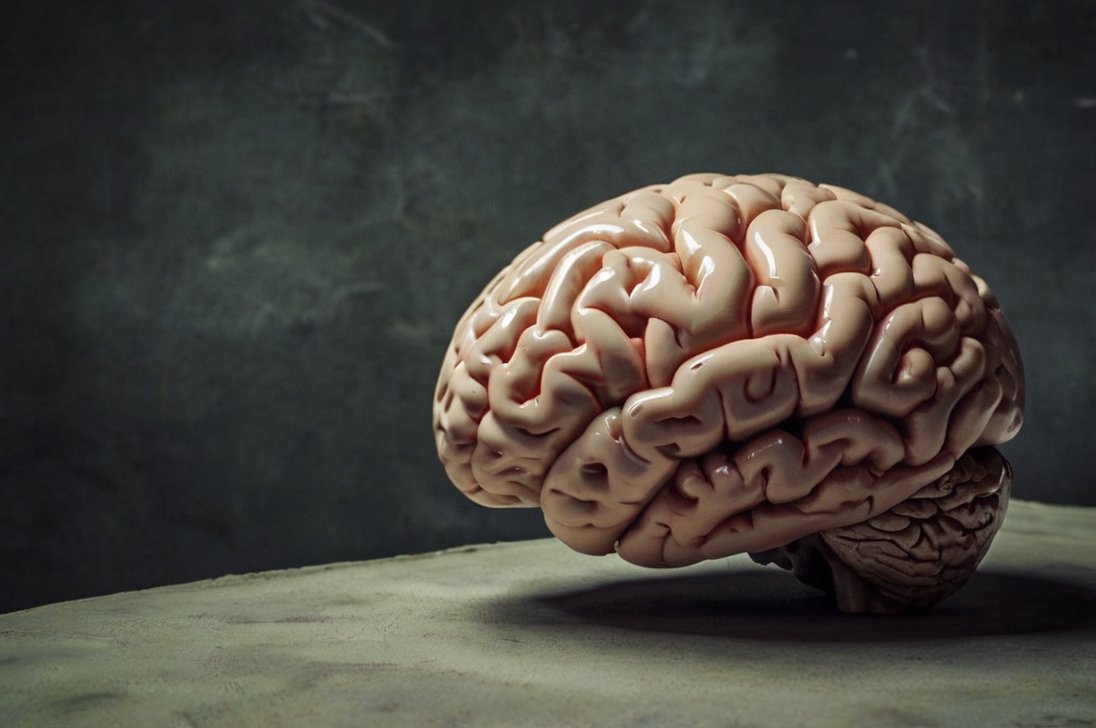
Autoimmune brain disorders are relatively rare but serious conditions that occur when the immune system, which normally protects the body from infections, mistakenly targets the brain and central nervous system (CNS).
This can lead to inflammation, damage to brain tissues, and a wide range of symptoms that affect both mental and physical health.
Early diagnosis and treatment are crucial to managing these conditions and improving the quality of life for those affected.
What Are Autoimmune Brain Disorders?
Autoimmune brain disorders are conditions where the immune system attacks the brain and CNS, causing inflammation and damage.
These disorders can affect different parts of the brain and result in a variety of symptoms, ranging from seizures to psychiatric disturbances.
Unlike other autoimmune diseases that might target organs like the thyroid or joints, autoimmune brain disorders specifically impact neurological functions, making them particularly challenging to diagnose and treat.
Symptoms of Autoimmune Brain Disorders
The symptoms of autoimmune brain disorders can be divided into two main categories: neurological and psychiatric.
These symptoms can vary widely depending on the specific disorder and the area of the brain affected.
Neurological symptoms
- Seizures: Seizures are common in autoimmune brain disorders and may occur suddenly, without any apparent trigger.
- Abnormal movements: This can include involuntary jerking, tremors, or other movement disorders.
- Vision loss: Inflammation of the optic nerve can lead to partial or complete vision loss.
- Weakness of arms or legs: Muscle weakness, particularly on one side of the body, is a common symptom.
- Loss of language: Difficulty in speaking or understanding language can occur when specific areas of the brain are affected.
- Sleep problems: Disruptions in sleep patterns, including insomnia or excessive sleepiness, are also reported.
Psychiatric Symptoms
Severe Depression: Sudden and severe depressive episodes that are resistant to standard treatments can be a sign of an autoimmune brain disorder.
- Hallucinations: Both visual and auditory hallucinations may occur, often mimicking psychiatric conditions like schizophrenia.
- Paranoid, obsessive, or erratic behavior: Behavioral changes, including paranoia or obsessive-compulsive behaviors, can be alarming and distressing.

Types of Autoimmune Brain Disorders
There are several types of autoimmune brain disorders, each with unique characteristics and challenges.
Below are some of the most commonly recognized conditions:
Autoimmune encephalitis
Autoimmune encephalitis occurs when the body’s immune system mistakenly attacks the brain.
This results in inflammation, which can disrupt normal brain function.
Symptoms vary but often include memory problems, confusion, and seizures.
Because the immune system is targeting the brain, treatment usually involves medications to calm the immune response and manage symptoms.
Autoimmune-related epilepsy
In some cases, epilepsy, which is a condition that causes frequent seizures, may be linked to an autoimmune response.
This means that the body’s immune system produces antibodies that mistakenly attack the brain, leading to seizures.
Addressing this type of epilepsy often involves treating the underlying autoimmune issue along with managing the seizures.
Central Nervous System (CNS) vasculitis
CNS vasculitis is a condition where the blood vessels in the brain and spinal cord become inflamed.
This inflammation can reduce blood flow to parts of the brain, potentially causing brain damage.
Symptoms can include headaches, confusion, and other neurological problems.
Treatment typically focuses on reducing inflammation and improving blood flow to the affected areas.
Hashimoto’s encephalopathy
Hashimoto’s encephalopathy is a rare condition linked to Hashimoto’s thyroiditis, an autoimmune disorder affecting the thyroid gland.
In this condition, inflammation occurs in the brain, leading to symptoms such as seizures, confusion, and difficulty with thinking and memory.
Managing this condition often involves treating the underlying thyroid disorder and using medications to reduce inflammation in the brain.

Neuromyelitis optica
Neuromyelitis optica is a condition that causes inflammation in the optic nerve (which affects vision) and the spinal cord.
This inflammation can lead to symptoms like vision loss and paralysis.
Treatment usually involves medications to control the inflammation and manage symptoms, aiming to prevent further damage and improve quality of life.
Optic neuritis
Optic neuritis is when the optic nerve, which carries visual information from your eyes to your brain, becomes inflamed.
This inflammation can lead to sudden vision loss, which may be either temporary or permanent.
The condition can be caused by various factors, including infections or autoimmune disorders.
Treatment typically involves addressing the underlying cause of the inflammation and may include medications like corticosteroids to reduce swelling and help restore vision.
Neurosarcoidosis
Neurosarcoidosis is a condition where sarcoidosis, an inflammatory disease that commonly affects the lungs and skin, also impacts the central nervous system (CNS).
When this happens, it can lead to a range of neurological symptoms such as headaches, seizures, or difficulty with movement.
Treatment usually focuses on reducing inflammation and managing symptoms, often using medications like corticosteroids or other immunosuppressants.
Neuro-Behcet’s disease
Neuro-Behcet’s disease is a type of Behcet’s disease that specifically affects the central nervous system.
Behcet’s disease is an autoimmune disorder that causes inflammation throughout the body, and when it involves the CNS, it can lead to symptoms such as severe headaches, confusion, and problems with balance and coordination.
Managing this condition typically involves treating the underlying autoimmune disorder and addressing specific neurological symptoms with medications and therapies.
Cerebral lupus
Cerebral lupus occurs when systemic lupus erythematosus (SLE), a chronic autoimmune disease, affects the brain.
SLE can lead to various symptoms, including headaches, seizures, and problems with cognitive functions like memory and concentration.
Treatment usually involves controlling the underlying lupus with medications that manage inflammation and the immune system’s activity, helping to alleviate neurological symptoms and improve quality of life.

Diagnosis and Treatment
Diagnosis
Diagnosing autoimmune brain disorders can be challenging due to the overlap of symptoms with other neurological and psychiatric conditions.
Diagnosis often involves a combination of:
- Neurological exams: To assess brain function and identify areas of concern.
- MRI scans: To detect inflammation or damage in the brain.
- Blood tests: To identify specific antibodies associated with autoimmune diseases.
- Spinal tap (lumbar puncture): To analyze cerebrospinal fluid for signs of inflammation.
Treatment options
Treatment for autoimmune brain disorders typically involves managing the immune response and alleviating symptoms:
- Immunosuppressive drugs: Medications that reduce immune system activity are often the first line of treatment.
- Corticosteroids: These are used to reduce inflammation in the brain.
- Plasma exchange (Plasmapheresis): This procedure removes harmful antibodies from the blood.
- Symptomatic treatment: Antidepressants, anticonvulsants, or other medications may be used to manage specific symptoms.
Impact on Daily Life
Living with an autoimmune brain disorder can significantly impact a person’s quality of life.
Challenges may include:
- Cognitive decline: Memory loss and difficulty concentrating can affect work and daily activities.
- Physical limitations: Muscle weakness, vision loss, and other neurological symptoms can limit mobility and independence.
- Emotional and psychological impact: The psychiatric symptoms, such as depression or hallucinations, can be particularly distressing for both patients and their families.
Support from healthcare providers, mental health professionals, and support groups is essential for managing these challenges.

Current Research and Advances
Research into autoimmune brain disorders is ongoing, with scientists exploring new treatment options and seeking to better understand the underlying causes.
Recent advances include:
- Biologics: Newer medications that target specific parts of the immune system show promise in treating autoimmune brain disorders.
- Genetic studies: Researchers are investigating the genetic factors that may contribute to these conditions, which could lead to more personalized treatments.
- Immunotherapy: Ongoing trials are exploring the use of immunotherapy to target and regulate the immune system more effectively.
Final Thoughts
Autoimmune brain disorders are complex and challenging conditions that require a multidisciplinary approach to diagnosis and treatment.
While living with these disorders can be difficult, advancements in medical research offer hope for better management and improved outcomes.
Understanding the symptoms, seeking timely medical intervention, and staying informed about new treatments can help individuals and their families navigate the challenges posed by these disorders.
FAQs
Autoimmune brain disorders are caused by the immune system mistakenly attacking healthy brain tissue. The exact trigger is often unknown, but it can be related to genetic factors, infections, or other autoimmune diseases.
While many autoimmune brain disorders are chronic and currently incurable, they can be managed with treatment to reduce symptoms and improve quality of life.
Diagnosis typically involves neurological exams, MRI scans, blood tests for specific antibodies, and possibly a spinal tap to assess cerebrospinal fluid.
Stress does not directly cause autoimmune brain disorders, but it can exacerbate symptoms and may trigger flare-ups in individuals who already have an autoimmune condition.



